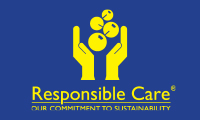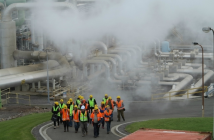As 2022 finally fades in the rear-view mirror, ending the plethora of analysis and commentary, we brace ourselves to negotiate a sadly familiar conglomeration of new and long-running challenges

The major events of 2021-22, especially the dramatic impact of severe weather and our controversial prolonged Covid 19 national response affecting the social and political landscape, are largely responsible for our faltering economy.
New Zealand’s 2022 economic and environmental travails continue to frustrate and confuse, imposing an enormous toll on communities and industry sectors alike.
After nearly three years, and despite new cases still in the thousands each week, Covid had disappeared from the public consciousness, replaced with more pressing concerns about inflation and the prospect of a deepening recession.
Adding to the escalating trials and tribulations of conducting a successful business are worsening skilled labour shortages, wage rises and falling performance standards in education and healthcare, compounding supply chain disruption continue to erode our productivity, economic prosperity and quality of life.
Throughout the past 15 months, New Zealand Inc continues to suffer economically, socially and emotionally. The extensive and repetitive damage and loss of life from extreme weather events is heart breaking, especially when emergency preparation and availability of the resources required to quickly respond, have been consistently found to be lacking.
Only the military and police personnel have the skills, together with vehicles and specialist equipment to operate in extreme conditions. Scarce emergency bridging equipment must be hired by local councils and is commonly left in place for years.
In a country vulnerable to pandemics, natural disasters and increasingly violent weather events, sound emergency preparedness will always be a fundamental ‘bread and butter’ challenge to resolve. Instead, we struggle to overcome years of inaction and under investment to protect and sustain vital services.
Vulnerable communications, transport links, energy supply and an increasingly fragile healthcare all require future proofing. It is not as if we lack collective experience, expertise and of course consultants.
What is seemingly too quickly forgotten and not comprehensively addressed are ‘lessons learned’ and implementing the consequential risk management required to prevent and mitigate reoccurrences.
Who isn’t aware our Healthcare professionals are united in pointing out the continuing deficiency in the face of more virulent Covid variants. Our admirable but under-strength national and regional emergency responders lack experience and require world-class training and equipment.
The extreme weather of 2022/23 surely demonstrates the futility of relying on vital infrastructure increasingly at risk of being restored to barely ‘fit for purpose’ status.
No government can guarantee our roads, railways, bridging and inter-island ferries capabilities will always survive increasingly unprecedented extremes of nature, especially earthquakes and flooding.
How many times will we patch up increasingly vulnerable road and rail corridors, before we prioritise the construction of more robust and efficient routes?
We can and must, do a better job of building resilient infrastructure by implementing a long-term, bi-partisan strategy and capital works programme, featuring sound design, superior build and performance specifications and regular maintenance.
This requires guaranteed funding and protection from short-term political influence in a multi-year, rolling national infrastructure development programme requiring a public referendum to alter.
Repairing and replacing damaged homes and transport links will take years to be effective without skilled staff in sufficient numbers.
This highlights our controversial immigration policy as we struggle to recruit and retain the required professionals. Our fixing potholes and not the road does not ensure continuing work for a diminishing group of capable construction companies.
The recent huge auction of roading machinery from an insolvent major contractor graphically demonstrates the real cost of wasteful, piecemeal funding of the cheapest minimum construction standard option, with subsequent massive cost over-runs and disruptive never-ending repairs.
Given New Zealand’s desultory performance in roading and the inescapable fact roads will never go out of fashion, we need designs and build standards for robust, world class roads of national significance.
The progress demonstrated by the skilled managers, artisans and contractors halfway through rebuilding the fire-stricken Notre Dame Cathedral in Paris in a mere four years are reportedly under budget and ahead of schedule.
New Zealand infrastructure planners take note? Countries build world class superhighways and other key infrastructure in years while we take decades.
Industry and the disrupted supply chain networks are adjusting to skilled labour shortages and fuel costs. They are now beset with fewer ship visits, exacerbated by the withdrawal of the Coastal Comet service to five key ports and the continuing shortage of drivers. This chronic congestion and resulting inefficiencies and increased costs through stockpiling and expensive bulk chemical storage facilities.
A direct consequence is greater pressure on already damaged roads delaying efforts to improve productivity and reduce historically high inflation which is boosting our cost of living.
The likelihood is that extreme weather events will become more common. To implement key lessons from 2022 in 2023 and beyond requires a monumental change in our approach to meeting and exceeding critical infrastructure deficiencies.
It begins with the pan political, long-term commitment to invest in planning and constructing world-class solutions and a capable healthcare system able to mitigate the next pandemic together with resilient national road, rail and communication networks.
We need a practiced, fully resourced national emergency preparedness capability.
But do not despair dear reader! There is a frisson of good news as 2022 is consigned to the history books and we focus on navigating the potholed landscape ahead.
Leapfrogging clearly less important legislation, the passing of the unheralded (but nonetheless welcome) Plain Language Act 2022 offers hope to beleaguered business operators struggling to interpret, let alone comply with, the unabated flow of regulations of dubious benefit and often contentious interpretation.
From April 2023, officialdom must jettison bureaucratic jargon in favour of clear, transparent and easily understood language when communicating with the public.
Given the heightened concern about the quality of our education system, another 535 communications staff in some major government agencies is the inevitable response.
Take care this year and do your best to avoid the potholes!
 Barry Dyer is the Chief Executive of Responsible Care New Zealand (formerly the NZ Chemical Industry Council). One of 65 chemical associations worldwide implementing the UN endorsed Responsible Care® Safety, Health and Environmental Protection initiative, RCNZ provides a comprehensive range of unique products and services to encourage, enable and verify the safe management of hazardous substances and dangerous goods.
Barry Dyer is the Chief Executive of Responsible Care New Zealand (formerly the NZ Chemical Industry Council). One of 65 chemical associations worldwide implementing the UN endorsed Responsible Care® Safety, Health and Environmental Protection initiative, RCNZ provides a comprehensive range of unique products and services to encourage, enable and verify the safe management of hazardous substances and dangerous goods.
These views are personal and not necessarily shared by Association members.







